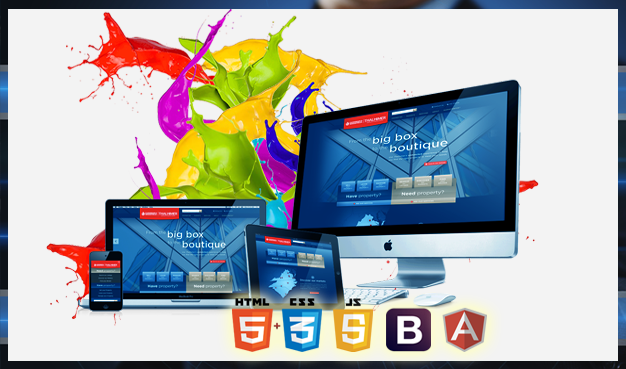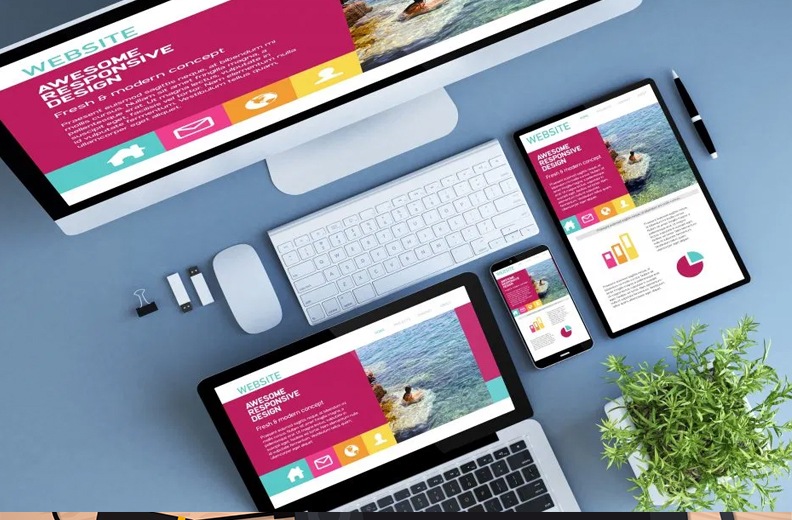- Have any questions?
- (Prasad) +91 96191 46851 | (Parag) +91 99878 20022
- support@pnpwebdesign.com
Website Designer is Crafting Digital Experiences the World

Website creator is Empower Your Digital Dreams
October 23, 2023
How to Block a Website – Taking Control of Your Online Experience:
October 23, 2023Website Designer is Crafting Digital Experiences the World

Website Designer
In the vast digital landscape, the role of a website designer is paramount. These creative individuals are the architects of the online world, shaping and sculpting digital experiences for businesses, individuals, and communities. In this blog post, we’ll explore the realm of website designers, their significance, the skills they possess, and how they breathe life into the internet.
The Role of a Website Designer
Website designers are the visual storytellers of the digital age. They craft websites that not only look appealing but also offer seamless user experiences. Their role encompasses several crucial aspects:
1. Visual Aesthetics
- Website designers are responsible for creating the overall look and feel of a website, from layout and color schemes to typography and graphics.
2. User Experience (UX)
- They ensure that websites are user-friendly, intuitive, and easy to navigate. The goal is to keep visitors engaged and satisfied.
3. Mobile Responsiveness
- With the surge in mobile device usage, website designers optimize websites to function flawlessly on various screen sizes.
4. Brand Consistency
- They maintain brand consistency by incorporating brand colors, logos, and messaging throughout the website.
5. Creativity and Innovation
- Website designers infuse creativity and innovation into their work, striving to set new design trends and create unique digital experiences.
The Skills of a Website Designer
Website designers possess a diverse skill set, combining technical expertise with artistic creativity. Here are the essential skills they bring to the table:
1. Graphic Design
- Proficiency in graphic design tools like Adobe Photoshop and Illustrator to create visual elements for websites.
2. HTML and CSS
- Knowledge of HTML and CSS coding is crucial for translating design into functional web pages.
3. User Interface (UI) Design
- Mastery of UI design principles to ensure that website interfaces are visually appealing and user-friendly.
4. Responsive Design
- Expertise in responsive design to create websites that adapt to various screen sizes and devices.
5. Communication Skills
- Effective communication is vital for understanding the client’s needs and translating them into design concepts.
6. Problem-Solving
- The ability to identify and solve design-related challenges, ensuring a smooth user experience.
The Human Touch in Website Design
Website design is not just about aesthetics and functionality; it’s also about human connection. Designers aim to create websites that resonate with the target audience, convey the brand’s story, and evoke emotions. It’s about understanding the end user’s perspective and ensuring that the website meets their needs and desires.
Working with a Website Designer
If you’re considering a website project, here are some tips for effectively collaborating with a website designer:
- Clearly Define Your Goals: Provide a clear and detailed brief about your project, including your objectives and target audience.
- Open Communication: Maintain open and transparent communication with your designer to share your vision and provide feedback.
- Trust Their Expertise: Website designers bring their skills and creative insights to the table. Trust their expertise and allow room for their creative input.
- Review and Feedback: Regularly review design drafts and provide constructive feedback to fine-tune the design according to your preferences.
- Mutual Respect: Respect the designer’s time and effort, and you’ll likely receive exceptional results in return.
Conclusion
Website designers are the magicians behind the digital curtain, weaving captivating online experiences that connect businesses and individuals with their audiences. Their skills, creativity, and attention to detail transform mere web pages into interactive, visually engaging destinations.




